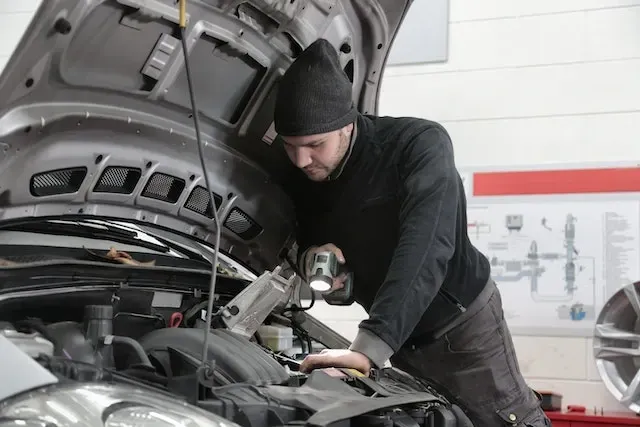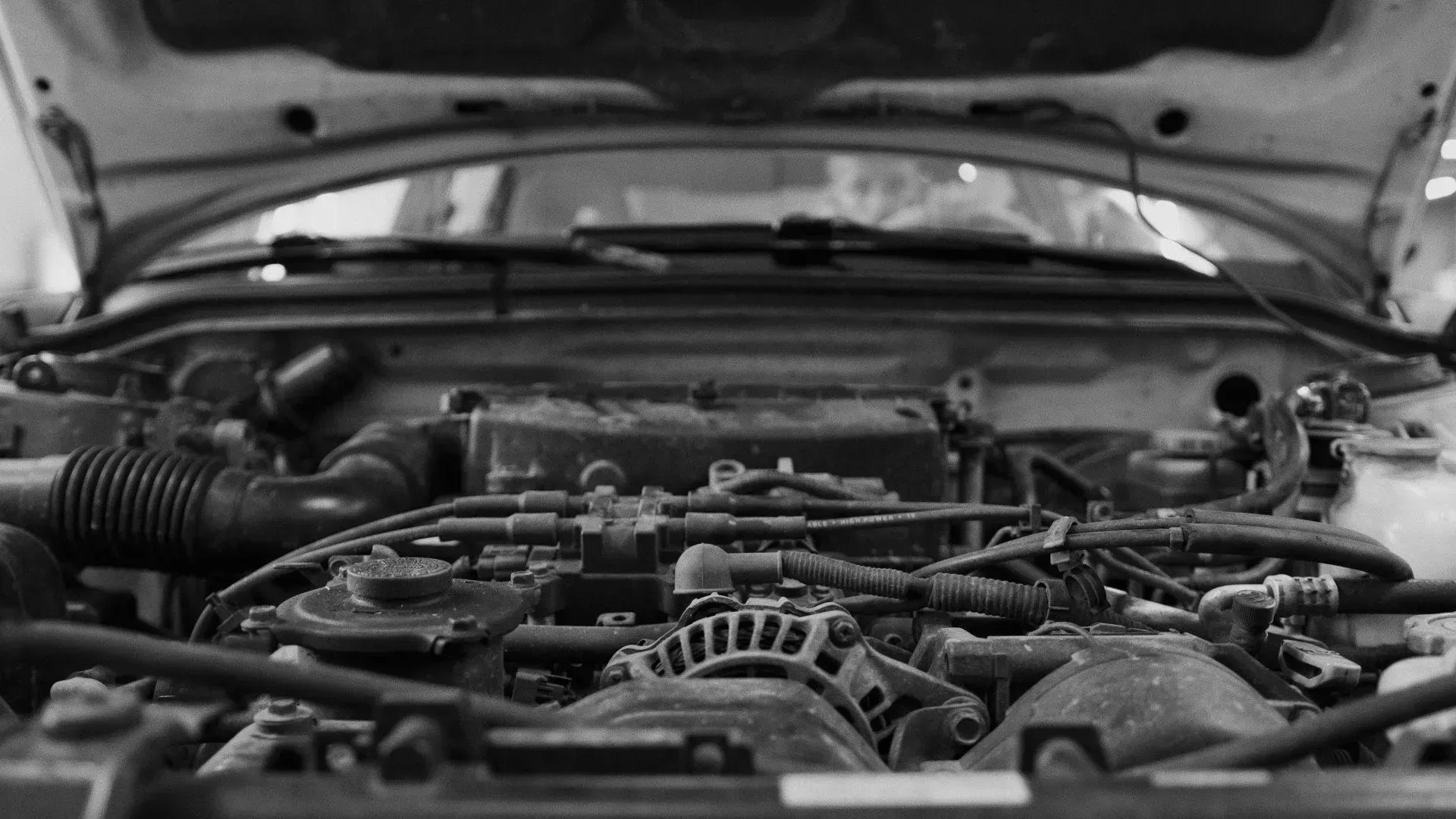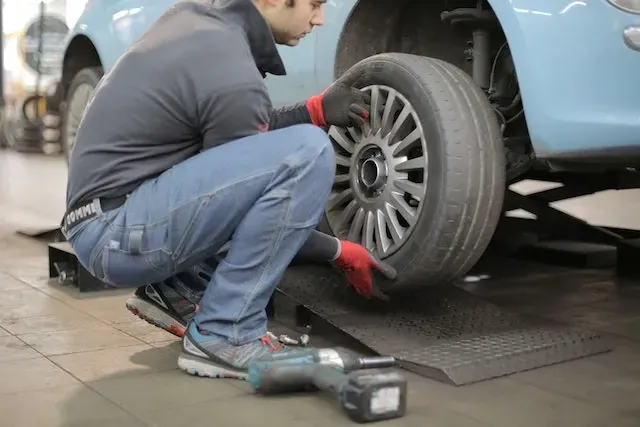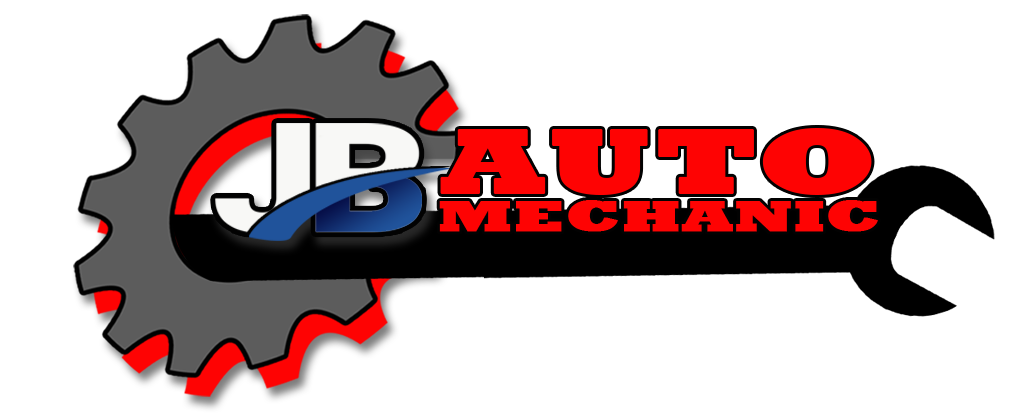7 Essential Tips for Maintaining Your Car Brakes in Optimal Condition
Admin Account • February 20, 2023
When it comes to ensuring your safety on the road, maintaining your car's braking system is of paramount importance.
The brakes are one of the most critical components of your vehicle, and regular upkeep is essential to keep them in optimal condition. By following these seven tips, you can help ensure that your car's brakes are reliable, effective, and ready to perform when you need them the most.
1. Schedule Regular Brake Inspections:
Regular brake inspections by a qualified mechanic are crucial for identifying any potential issues early on. Aim to have your brakes inspected at least once a year or more frequently if you notice any unusual sounds, vibrations, or changes in braking performance. A professional inspection will assess the brake pads, rotors, calipers, brake lines, and fluid levels, providing you with peace of mind and addressing any concerns promptly.
2. Check Brake Fluid Levels:
Brake fluid plays a vital role in the proper functioning of your vehicle's braking system. Low or contaminated brake fluid can significantly impact brake performance. Periodically check the brake fluid reservoir, located under the hood, to ensure it is at the recommended level. If the fluid appears dark or discolored, it may be time for a brake fluid flush and replacement.
3. Monitor Brake Pad Wear:
Brake pads are designed to wear out over time due to friction. Regularly inspecting the thickness of your brake pads is essential to ensure their effectiveness. Most brake pads have a wear indicator, a small metal tab that makes contact with the rotor when the pad thickness becomes dangerously low. If you notice that your brake pads are nearing the wear indicator or are less than 1/4 inch thick, it's time to replace them.
4. Listen for Unusual Sounds:
Pay attention to any unusual sounds coming from your brakes. Squealing, grinding, or screeching noises when applying the brakes often indicate worn-out brake pads. Ignoring these sounds can lead to more extensive damage, including damage to the rotors, which can be more expensive to repair. Get your brakes inspected promptly if you notice any unusual noises.
5. Avoid Riding the Brakes:
Riding the brakes, especially when driving downhill, generates excessive heat and wears out the brake pads and rotors faster. Instead, use engine braking by shifting to a lower gear to slow down the vehicle. This technique reduces strain on the braking system and helps extend the lifespan of your brake components.
6. Practice Smooth Braking:
Abrupt or aggressive braking can put unnecessary stress on your vehicle's braking system. Instead, practice smooth and gradual braking, allowing ample time for the vehicle to decelerate. This technique minimizes wear on the brake pads and prevents sudden strain on other components.
7. Maintain Tires and Suspension:
Proper tire maintenance, including regular rotations and maintaining correct tire pressure, contributes to overall brake performance. Additionally, a well-maintained suspension system ensures proper weight distribution during braking, reducing the strain on the brakes and optimizing their effectiveness. Regularly inspect your tires and suspension components and address any issues promptly.
Taking care of your car's braking system is essential for your safety on the road. By following these seven tips and staying proactive with brake maintenance, you can ensure that your brakes remain in good condition and perform reliably when you need them. Remember, regular inspections, monitoring brake pad wear, listening for unusual sounds, and practicing smooth braking techniques are all key to maintaining optimal brake performance. Prioritize brake maintenance and enjoy the peace of mind that comes with a well-maintained braking system.
You might also like

Maintaining a car in top-notch condition is essential for a smooth and hassle-free driving experience. To ensure your vehicle receives the care it deserves, finding a trustworthy and skilled car mechanic is crucial. With numerous options available, it can be overwhelming to select the right one. In this blog post, we will guide you through the process of choosing a car mechanic who will provide reliable auto repairs and keep your vehicle running smoothly. As a reputable and highly recommended option, we suggest considering JB Auto Mechanic for all your automotive needs. 1. Seek Recommendations: One of the best ways to begin your search for a reliable car mechanic is by seeking recommendations from friends, family, and colleagues who own vehicles. They can provide valuable insights into their experiences with different mechanics, helping you narrow down your options. Pay attention to the quality of service, professionalism, and overall satisfaction of their recommendations. 2. Check for Certifications and Training: A competent car mechanic should possess the necessary certifications and qualifications to work on your vehicle. Look for certifications such as Automotive Service Excellence (ASE) or manufacturer-specific training. These certifications indicate that the mechanic has undergone rigorous training and has met specific standards in the automotive industry. Such credentials are a testament to their expertise and commitment to professional development. 3. Consider Experience and Expertise: Experience plays a vital role in the automotive industry. Look for mechanics who have been in the field for a considerable period. An experienced mechanic is more likely to have encountered a wide range of car issues and developed the skills to diagnose and repair them efficiently. Additionally, consider whether the mechanic specializes in the make and model of your vehicle. Expertise in specific brands or models often leads to more accurate diagnoses and better repairs. 4. Evaluate Reputation and Reviews: Researching the reputation of a car mechanic is crucial before making your final decision. Check online reviews and ratings on platforms like Google, Yelp, or the mechanic's website. Look for consistent positive feedback regarding their quality of work, transparency, pricing, and customer service. If you come across negative reviews, pay attention to the nature of the complaints and how the mechanic addressed them. A reputable mechanic will strive to resolve customer issues promptly and professionally. 5. Assess Facilities and Equipment: When visiting a potential car mechanic, take note of the condition of their facilities and equipment. A well-maintained and organized workshop is an indication of a mechanic's professionalism and attention to detail. State-of-the-art diagnostic equipment and tools can greatly enhance the accuracy and efficiency of repairs. A mechanic who invests in high-quality equipment demonstrates their commitment to providing top-notch service. Why JB Auto Mechanic is a Top Recommendation: With all these criteria in mind, JB Auto Mechanic stands out as an excellent choice for your auto repair needs. They possess a strong reputation in the community, with numerous satisfied customers who attest to their exceptional service. The mechanics at JB Auto Mechanic are highly trained and experienced, ensuring that your vehicle is in capable hands. They specialize in various makes and models, allowing them to deliver precise diagnoses and efficient repairs. Furthermore, their state-of-the-art facility and commitment to staying up-to-date with the latest advancements in the industry guarantee a comprehensive and reliable service. Selecting the right car mechanic is crucial to ensure your vehicle receives the best possible care. By seeking recommendations, checking certifications, considering experience, evaluating reputation, and assessing facilities, you can make an informed decision. Among the many options available, JB Auto Mechanic stands out as a top recommendation due to their exceptional service, skilled mechanics, and commitment to customer satisfaction. With JB Auto Mechanic, you can trust that your auto repair needs will be handled with expertise and professionalism.

Owning a car comes with the responsibility of regular maintenance to keep it running smoothly and efficiently. Among the various aspects of vehicle upkeep, engine diagnostics and maintenance stand out as crucial elements that deserve special attention. By monitoring and evaluating the condition of your car's engine, you can prevent potential problems and ensure its optimal performance. In this blog post, we will delve into the significance of engine diagnostics and maintenance, highlighting the benefits they offer to car owners. And if you're looking for a reliable auto mechanic, JB Auto Mechanic is your go-to destination for all your car needs. 1. Early Detection of Issues Engine diagnostics involve the use of specialized tools and equipment to assess the internal workings of your vehicle's engine. By employing advanced diagnostic systems, potential issues can be detected before they escalate into major problems. These diagnostic tools can pinpoint a wide range of problems, including faulty sensors, ignition system malfunctions, fuel injector issues, and more. Early detection allows for prompt repairs and prevents costly breakdowns or more extensive damage to the engine. 2. Improved Performance and Fuel Efficiency Regular engine maintenance, including tune-ups and component checks, plays a vital role in optimizing your vehicle's performance. By keeping your engine in good condition, you can enjoy improved fuel efficiency, smoother acceleration, and overall enhanced performance. Neglecting maintenance can lead to decreased power output, reduced fuel economy, and sluggish performance. A well-maintained engine, on the other hand, ensures that your car delivers the performance you expect while maximizing fuel economy. 3. Enhanced Safety A properly maintained engine contributes significantly to your safety on the road. Engine problems, such as a sudden loss of power or engine stalling, can compromise your ability to control the vehicle and respond to driving conditions promptly. Regular diagnostics and maintenance help identify potential safety concerns and prevent unexpected engine failures. By entrusting your car to professionals like JB Auto Mechanic, you can have peace of mind knowing that your vehicle is in safe hands. 4. Prolonged Engine Life Your car's engine is a complex and intricate system that requires regular attention and care. Engine diagnostics and maintenance go a long way in extending the lifespan of your engine. Routine maintenance tasks like oil changes, filter replacements, and spark plug inspections help keep the engine running smoothly and reduce wear and tear. Additionally, identifying and addressing minor issues early on can prevent them from causing major damage that could lead to engine failure. By investing in engine diagnostics and maintenance, you're effectively extending the life of your vehicle. 5. Trusted Experts: JB Auto Mechanic When it comes to engine diagnostics and maintenance, choosing the right auto mechanic is essential. JB Auto Mechanic is a reliable and trusted name in the industry, known for their expertise and commitment to customer satisfaction. Their team of skilled technicians is well-versed in diagnosing engine problems accurately and providing effective solutions. Whether you require routine maintenance or complex repairs, JB Auto Mechanic can cater to all your car needs, ensuring top-notch service and peace of mind. Engine diagnostics and maintenance are indispensable for maintaining your vehicle's reliability, performance, and safety. Regular monitoring, early detection of issues, and timely repairs can help prevent major breakdowns, optimize fuel efficiency, and prolong the life of your engine. By choosing a reputable auto mechanic like JB Auto Mechanic, you can ensure that your car receives the care it deserves. So, make engine diagnostics and maintenance a priority and enjoy the benefits of a well-maintained and reliable vehicle for years to come.

When it comes to maintaining our vehicles, we often prioritize oil changes, engine tune-ups, and brake inspections, while overlooking a crucial aspect of car maintenance: tire rotations. Regular tire rotations are an essential service that every car owner should prioritize. Not only do they extend the lifespan of your tires, but they also enhance your vehicle's overall performance and safety on the road. In this article, we will delve into the significance of tire rotations and how they can benefit your car. Additionally, we will introduce you to JB Auto Mechanic, a trusted destination for all your automotive needs. Enhancing Tire Life: Tires undergo uneven wear and tear due to various factors such as road conditions, driving habits, and vehicle weight distribution. Without regular rotations, the front and rear tires will experience different rates of wear, leading to premature tire replacement. By rotating the tires regularly, you ensure a more even wear pattern, maximizing the lifespan of each tire. This cost-effective practice can potentially save you from the expense of buying new tires sooner than necessary. Improving Performance and Handling: Unevenly worn tires can negatively impact your car's performance and handling. Front tires tend to wear down faster than the rear ones in most front-wheel-drive vehicles due to the weight distribution and steering dynamics. As the front tires wear down, they lose traction and responsiveness, affecting braking, cornering, and overall stability. By rotating the tires, you maintain consistent tread depth across all four wheels, ensuring optimal handling, improved grip, and a smoother ride. Ensuring Balanced Driving Experience: Tire rotations also contribute to a balanced driving experience. Unevenly worn tires can cause vibrations and an imbalanced ride quality. Regular rotations eliminate these issues by evenly distributing the wear, resulting in a smoother and more comfortable drive. By maintaining a balanced driving experience, you enhance your overall driving satisfaction and reduce the risk of discomfort or fatigue during long journeys. Enhancing Safety: Safety on the road should always be a top priority for every driver. Well-maintained tires play a crucial role in ensuring your safety and that of others. Tires with uneven wear patterns are more prone to blowouts, hydroplaning, and reduced traction, especially in adverse weather conditions. By regularly rotating your tires, you improve their overall condition, allowing them to perform optimally in different driving situations. This simple maintenance practice significantly enhances your vehicle's safety and reduces the likelihood of accidents caused by tire-related issues. Trust JB Auto Mechanic for Your Car Needs: When it comes to maintaining your vehicle, it's essential to entrust it to skilled professionals who have extensive knowledge and experience in automotive care. JB Auto Mechanic is a reputable auto repair shop that offers a comprehensive range of services, including tire rotations. Their team of certified technicians ensures that your tires are rotated with precision, following manufacturer recommendations and industry best practices. With a commitment to quality service and customer satisfaction, JB Auto Mechanic is your go-to destination for all your automotive needs. Regular tire rotations are not just another routine maintenance task; they are a critical aspect of car care that should not be overlooked. By extending the lifespan of your tires, improving performance and handling, ensuring a balanced driving experience, and enhancing overall safety, tire rotations offer a multitude of benefits. So, don't neglect this important maintenance practice. Visit JB Auto Mechanic and let their experts take care of your tire rotation needs. Your car and your wallet will thank you. Remember, when it comes to keeping your vehicle in top shape, a little preventive maintenance goes a long way, and regular tire rotations are an investment worth making.


